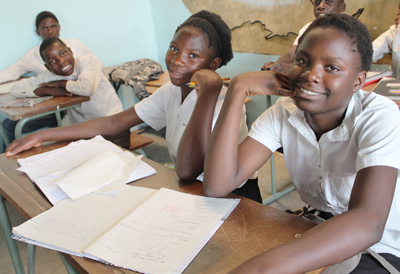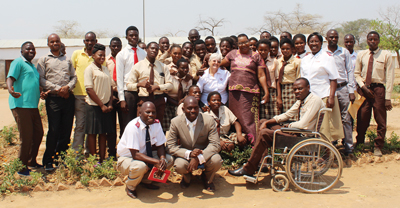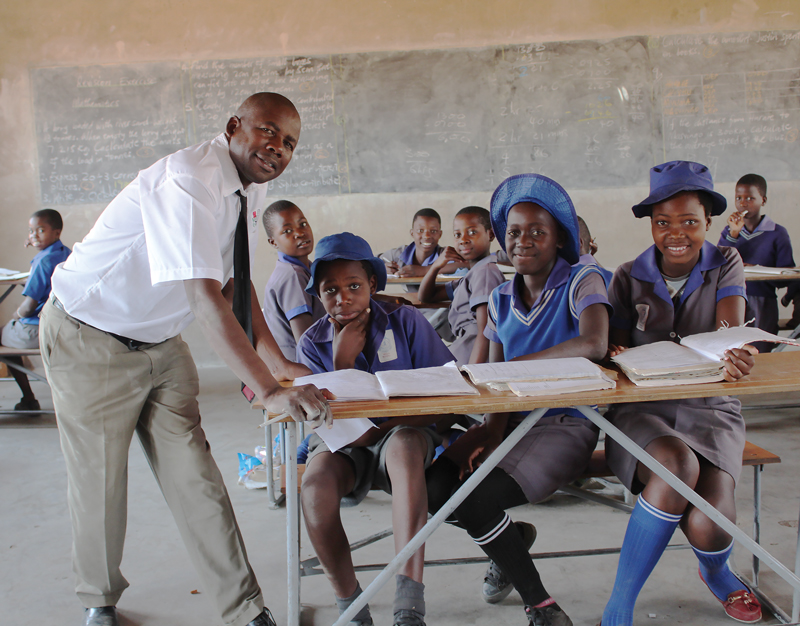Last September, I travelled to Zimbabwe and Zambia to visit some of the schools supported by The Salvation Army’s Brighter Futures Children’s Sponsorship Program. It took two days to reach Matabeleland South, a province in southwestern Zimbabwe, where the climate is extremely hot and dry. The region sits on the edge of the Kalahari Desert, and had been without rain for two years. As we drove along dried-out riverbeds, we often saw children digging in the dirt, hoping for water.
When we arrived at Seula Primary School, the students welcomed us with song. Many walk long distances to get to school, leaving early in the morning and getting home late, but they are happy to learn.
 At Kawama Primary School in Zambia, education gives girls a future
At Kawama Primary School in Zambia, education gives girls a future
As we walked around the compound, we learned that every child was being allowed to attend school, even those who weren’t part of the program. “They want to learn so much, and we have to teach classes anyway—I just don’t have the heart to turn any of them away,” confessed the headmaster.
We could see the determination of staff and parents to help the children. In the small office, there were charts with short-term and long-term goals. One goal was underway with the construction of a new classroom, but the workers were struggling with the heat and lack of water.
In this remote, arid region, malnutrition is a serious concern. Many students at the school were also struggling because of the suspension of feeding programs, due to a cholera scare across the country. Life is challenging, but the Brighter Futures program offers tangible help and hope.
One of the ways we make funding go further is by partnering with The Salvation Army’s Gifts of Hope (visit saworldmissions.ca/giftsofhope). In Chaanga, Zambia, many children have lost their parents to the HIV epidemic. Extended family and neighbours have stepped in to provide food, clothing and shelter, but little is left for tuition fees, forcing many to drop out of school.
Things began to change when each orphan or vulnerable child in the community received one or two goats through Gifts of Hope, providing a sustainable source of income.
 Mjr Donna Barthau with staff and students, including Vernon, from Chaanga Secondary School in Zambia
Mjr Donna Barthau with staff and students, including Vernon, from Chaanga Secondary School in Zambia
We also encourage the children’s homes and schools we support to become self-sustaining, often through agriculture and small livestock farming. At Kawama Primary School in Zambia, a parent-teacher group has recently started a chicken project. The children are learning responsibility as they look after the chickens, and income from selling the eggs allows more children to attend school.
The Brighter Futures program is making an incredible difference in Zimbabwe and Zambia. If you would like to be part of giving children a brighter future, please visit saworldmissions.ca or call 416-422- 6224.
Major Donna Barthau is the sponsorship co-ordinator in the world missions department.










Leave a Comment